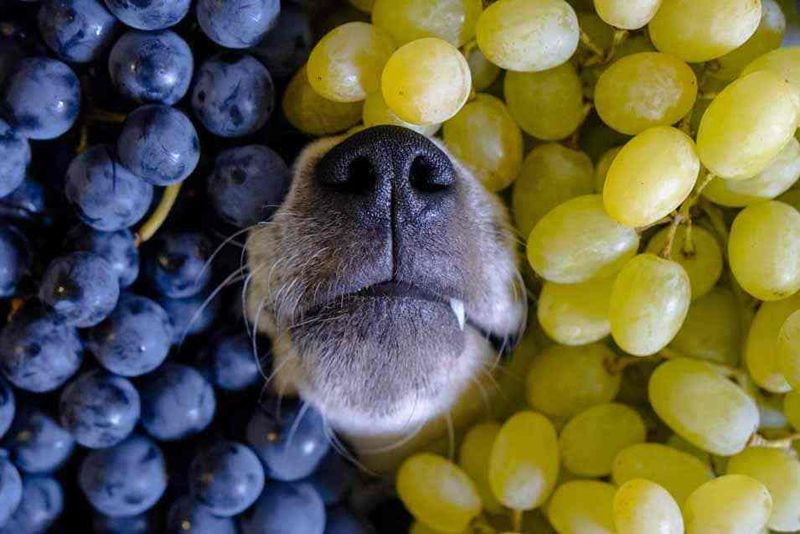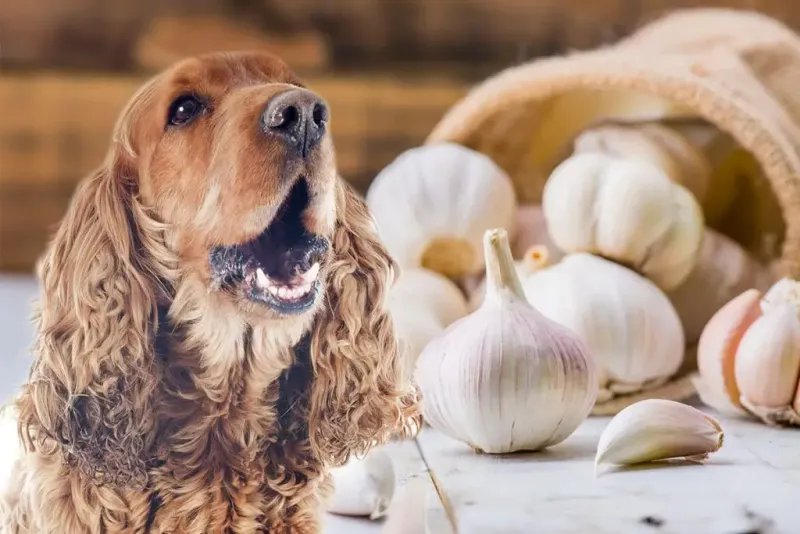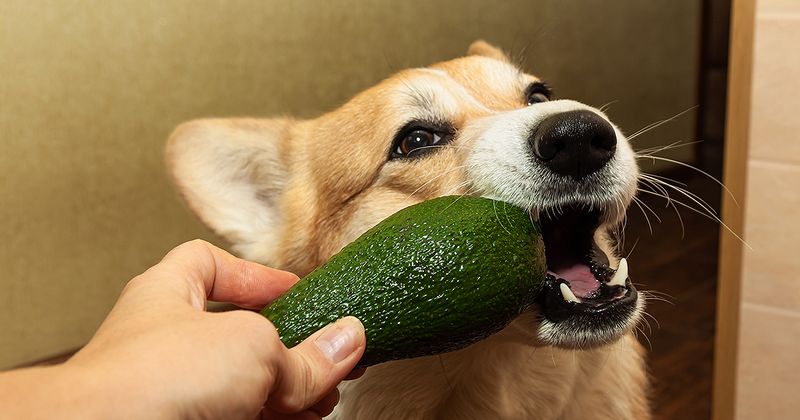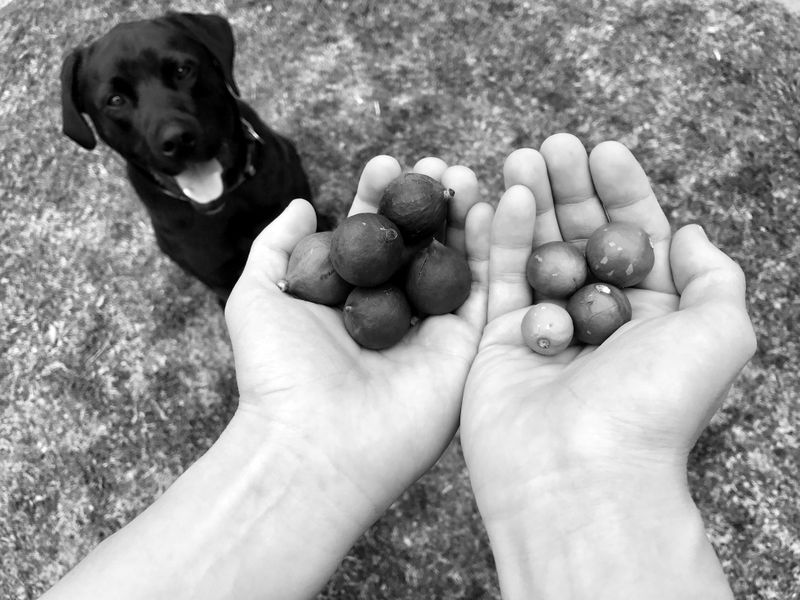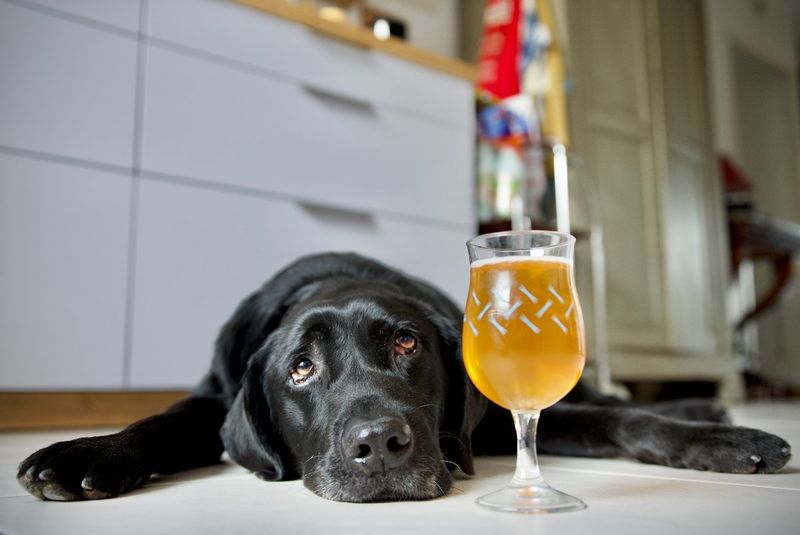Many dog owners unknowingly feed their furry friends foods that are considered safe but can be harmful. Veterinarians have identified specific foods that pose hidden dangers to dogs. It’s crucial to be aware of these risks to ensure the well-being of your canine companion. This blog post explores 11 seemingly harmless foods that can secretly poison dogs, revealing the hidden dangers behind each one.
Grapes and Raisins
Imagine your dog with a puzzled look, sniffing a bowl of grapes. Grapes and raisins might seem like harmless snacks, but they can cause severe kidney damage in dogs. Even a small amount can lead to sudden kidney failure. The exact toxic compound in grapes is unknown, but their effects are well-documented. Curious dogs might find these snacks on tables or countertops, making them even more dangerous. Always keep grapes and raisins out of reach, and educate others about the risk. A fun fact: raisins were used as money in ancient Rome!
Chocolate
A dog’s hopeful eyes lock onto a forgotten chocolate bar. Chocolate contains theobromine, which is toxic to dogs. Depending on the amount and type, it can lead to heart problems, seizures, and even death. Dark chocolate holds the highest risk due to its concentrated theobromine content. The smell of chocolate can attract dogs, increasing the risk of accidental ingestion. Ensure chocolate is stored securely, beyond the reach of curious paws. Did you know that chocolate was once used as currency by the Aztecs?
Onions and Garlic
A romp in the kitchen leads your dog to sniff chopped onions and garlic. Although these ingredients add flavor to our dishes, they can cause anemia in dogs. Both onions and garlic destroy red blood cells, leading to weakness and lethargy. Even cooked or powdered forms are dangerous. A small dose can accumulate over time, posing a long-term health threat. Keep all forms of onions and garlic away from your pup’s curious nose. Interestingly, onions were once considered a symbol of eternity in ancient Egypt.
Avocado
Your dog gazes at a ripe avocado with innocent curiosity. Avocados contain persin, a substance toxic to dogs, causing vomiting and diarrhea. While the fruit itself poses a risk, the pit can be a choking hazard. The creamy texture might tempt dogs, but it’s best to keep avocados out of their reach. Notably, avocados are a berry, and more than two billion pounds are consumed in the U.S. annually. Protect your dog by ensuring no access to avocados, whether whole or in meals.
Macadamia Nuts
Picture a mischievous dog discovering macadamia nuts on the table. These nuts can cause weakness, vomiting, and hyperthermia in dogs. The exact reason for their toxicity is unknown, but the effects are evident within 12 hours of ingestion. Symptoms include tremors and lethargy, alarming to any pet owner. Avoid leaving macadamia nuts in accessible places, and warn guests about the potential danger. Fun fact: macadamia nuts are one of the most expensive nuts in the world due to their tough shell.
Alcohol
Imagine a dog cautiously approaching a spilled glass of wine, intrigued by the new smell. Alcohol can be incredibly dangerous for dogs, leading to vomiting, breathing difficulties, and even coma. Dogs are far more sensitive to alcohol than humans, and even small amounts can be harmful. Beer, wine, and spirits should all be kept far from inquisitive noses. Parties and gatherings can increase the risk of accidental consumption. Interestingly, ancient Egyptians brewed a beer-like beverage over 5,000 years ago.
Caffeine
A curious dog eyes a steaming cup of coffee, intrigued by its aroma. Caffeine, found in coffee, tea, and energy drinks, is toxic to dogs, causing restlessness, rapid breathing, and heart palpitations. Even small amounts can trigger these symptoms, leading to severe health issues. Dogs are often drawn to the smell of coffee, so ensure beverages are kept out of reach. Fun tidbit: the coffee plant hails from Ethiopia, where it was discovered by a goat herder named Kaldi in the 9th century.
Xylitol
Envision a dog investigating a pack of sugar-free gum. Many gum brands contain xylitol, a sugar substitute harmful to dogs. Xylitol consumption can lead to rapid insulin release, causing hypoglycemia and potentially liver failure. Even small amounts can be life-threatening, emphasizing the need for caution. Xylitol is found in various products, including toothpaste and certain peanut butters, so vigilance is vital. A historical note: xylitol was first derived from birch trees in the early 20th century.
Yeast Dough
Picture a dog fascinated by a rising ball of yeast dough. When ingested, the dough expands in the stomach, causing bloating and potential torsion. The fermentation process also produces alcohol, contributing to its danger. Even small pieces of dough can pose significant health risks. Keep it well away from your dog, especially during baking sessions. An interesting tidbit: yeast has been used in bread making since ancient Egypt, highlighting its long-standing culinary value.
Salt
A dog curiously licks at spilled salt on the floor, unaware of its dangers. Consuming large amounts can lead to sodium ion poisoning, causing vomiting, diarrhea, tremors, and seizures. Dogs are often drawn to salty foods, making them more susceptible to accidental ingestion. Keep an eye on potentially exposed snacks and ensure spills are cleaned promptly. Did you know? Salt was once so valuable that it was used as a currency in ancient times, influencing the word ‘salary.’
Bones from Cooked Meat
A dog happily gnawing on a cooked chicken bone seems harmless, yet it poses significant risks. Cooked bones can splinter, causing blockages or tears in the digestive tract. Despite their allure, cooked bones must be avoided to prevent serious harm. Instead, offer raw bones or safe chew toys designed for dogs. An intriguing fact: bones are a natural source of minerals, yet cooked bones lose this benefit due to moisture loss and brittleness, making them perilous for pets.

